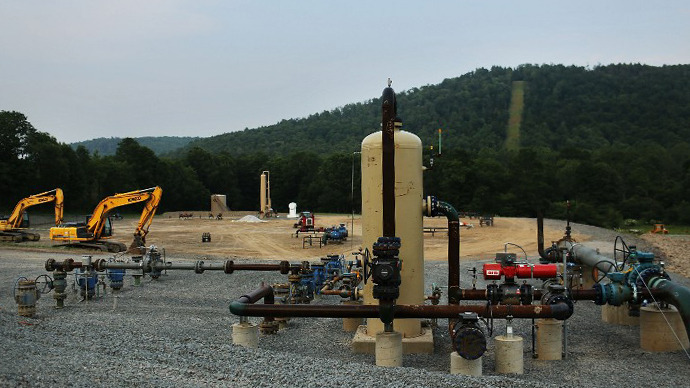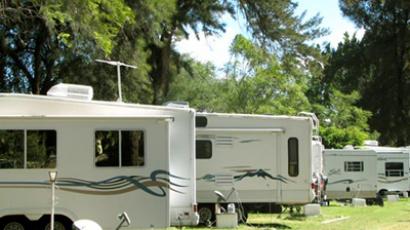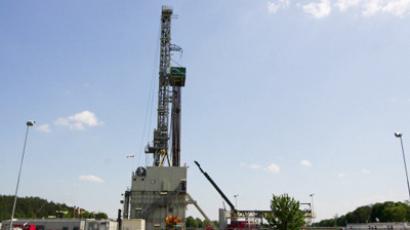Court ruling: Obama administration overlooked fracking risks

The Obama administration has broken the law, issuing oil leases across California without examining the risks of fracking. A federal judge ruled that the administration has “completely ignored” environmental concerns upon issuing the leases.
In response to a lawsuit filed by environmentalist groups, US Magistrate Judge Paul Grewal ruled that the US Bureau of Land Management (BLM) violated the law by distributing oil drilling rights before reviewing the potential risks associated with fracking.
“BLM’s dismissal of any development scenario involving fracking as ‘outside of its jurisdiction’ simply did not provide the ‘hard look’ at the issue that NEPA requires,” Grewal said during Sunday’s ruling in San Jose, Calif.
While the ruling highlights the flaws of the Obama administration, it is largely viewed as a landmark victory by environmentalists who have been fighting against the procedures they fear might harm the environment.
“It’s the first federal court opinion we’re aware of that explicitly holds that federal agencies have to analyze the environmental impacts of fracking when carrying out an oil and gas leasing program,” Brendan Cummings, a lawyer for the Center for Biological Diversity, which was involved in filing the lawsuit, told Reuters.
“This is an important decision that recognizes the significant risks that fracking poses to California’s land, air and water,” Cummings told Bloomberg News in a separate e-mail. “In an era of dangerous climate change, the federal government should not be leasing public land for extreme forms of fossil fuel extraction.”
As a result of the court decision, which was made public Monday, drilling will be banned on the 2,500 acres of California land that were leased out for oil and gas development in 2011. The land lies on the Monterey Shale Formation, which is home to one of the largest shale oil deposits in the US. With an estimated 15 billion barrels of oil, the 20,000-acres that make up the Monterey Shale Formation account for 64 percent of the nation’s oil deposits.
Environmentalists are concerned that since California is prone to droughts and earthquakes, fracking could contaminate local water supplies and pollute the air. Some residents located near the oil and gas producing sites claim their homes are cracking due to the drilling. Members of the Sierra Club and the South Monterey County, the groups responsible for the lawsuit, also claim that fracking could trigger seismic activity.
“Fracking is happening completely unregulated in the state of California,” Brenna Norton, an organizer with Food and Water Watch, said last summer. “Oil and gas companies don’t have to say where they frack or what chemicals they are injecting into water, possibly close to your drinking water.”
Environmentalists have also argued that chemical exposure from gas fracking sites can cause health complications. About 70 percent of residents located near the Marcellus Shale natural gas field last year reported an increase in throat irritation, and 80 percent reported sinus problems. A number of European countries have already banned fracking, and Germany might soon join them.
But in the US, the potential risks have not even been given a second glance by the BLM – a move that Judge Grewal found surprising.
“The potential risk for contamination from fracking, while unknown, is not so remote or speculative to be completely ignored,” he wrote in the court ruling.
Meanwhile, California-based oil companies are hoping that the court will let them continue drilling once fracking is deemed ‘safe’. Tupper Hull, a spokesman for the refinery group Western States Petroleum Association, told Reuters that the judge only ruled against the BLM process – not fracking itself. He said he’s viewing the ruling as a ‘delay’, but said that “hopefully the court will ultimately allow the lease to go forward and production to take place.”
The court ruling currently affects four oil-drilling leases. Judge Grewal said that he is only examining the legal issues surrounding the distribution of these leases – not the risks involved with fracking.
“What is before us is the legal question of whether the BLM actions are issue in this case were ‘abritrary, capricious, an abuse of discretion, or otherwise not in accordance with the law,’” Grewal wrote. “What is not is the policy question of whether fracking in the Monterey Shale or anywhere else is a good thing or a bad thing.”














